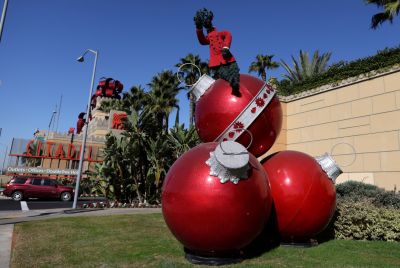Smokestacks And Skis: Beijing's Most Striking Olympic Venue
When Chinese freestyle skier Eileen Gu won an Olympic gold on Tuesday with a stunning jump, only one thing threatened to overshadow the show -- the massive industrial cooling towers behind her, an unusual backdrop for a winter sport.
The 60-metre-high "Big Air" jumping platform built on the grounds of a century-old decommissioned steel mill has become an international social media sensation, blasted by critics as "dystopian" and lauded by others as an innovative example of urban renewal.
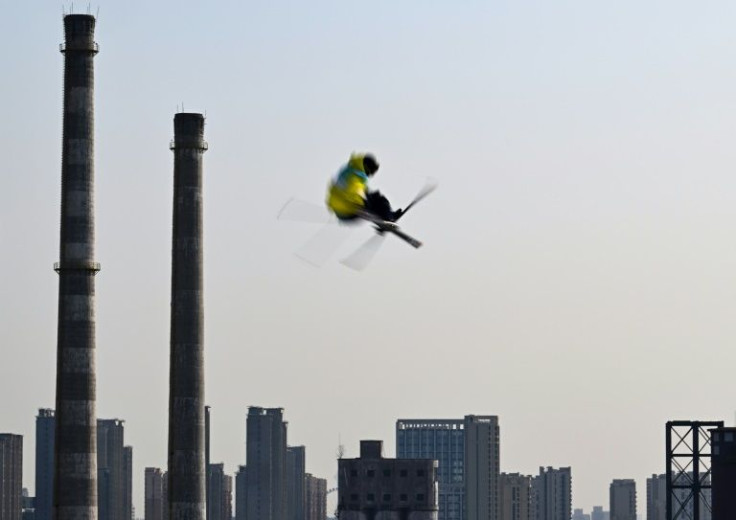
Big Air Shougang was built on the grounds of an old steelworks that once employed more than 200,000 workers.
The plant, constructed in 1919 and operated by the now state-owned steel giant Shougang Group, had the capacity to make 10 million tonnes of steel per year at its peak, according to state news agency Xinhua.
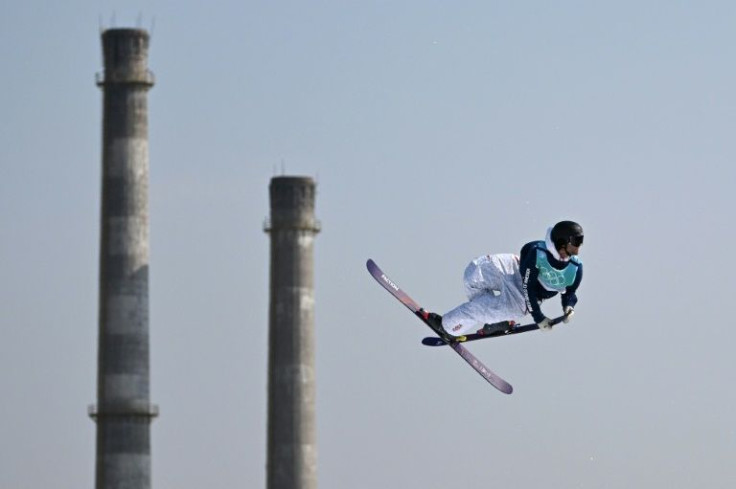
The huge Capital Iron and Steel Works was a showcase for Communist leader Mao Zedong's attempts to rapidly modernise the then poverty-stricken nation.
But with its huge output came massive pollution -- the factory's smokestacks spewed up to 9,000 tonnes of pollutants into the air each year, filling the surrounding Shijingshan district with thick smog.
"Local residents dared not to go outdoors to enjoy the cool during sweltering summer nights, they dared not eat meals outdoors and dared not dry clothes outdoors -- in just one night, white clothes could be turned black," retired steelworker Lu Zengzhi told Xinhua in 2011.
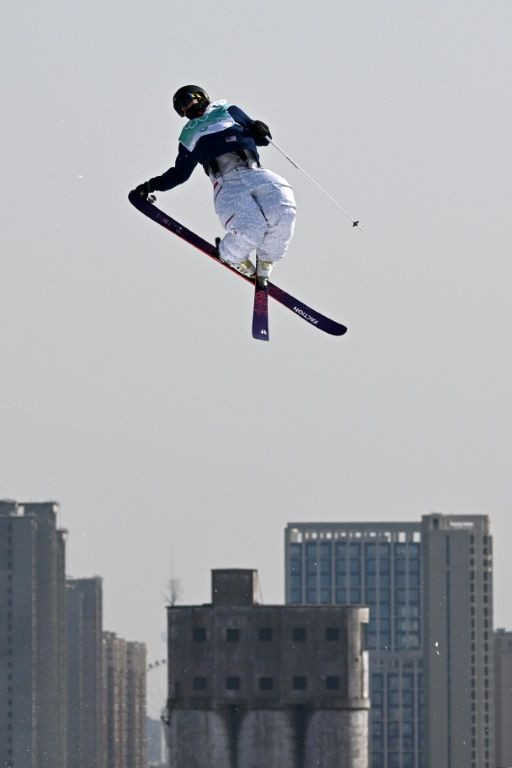
In an effort to clean up the capital's air ahead of the 2008 Beijing Summer Olympics, the Chinese government in 2005 ordered the factory to begin moving production away from the city.
The plant shipped its last batch of steel wires in December 2010.
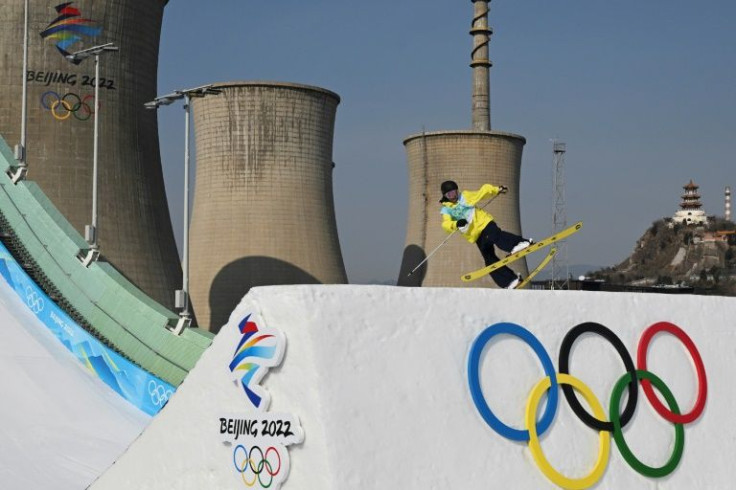
The defunct steel mill has turned into a trendy destination akin to London's Battersea Power Station in recent years, home to bars, offices, museums and a Shangri-La Hotel featuring exposed concrete and steel.
Influencers now flock to the area, drawn by its grungy aesthetics, with users of the Instagram-like Chinese app Xiaohongshu sharing tips on how to get the most artistic shots of its rusting machinery.
The region has been partly inspired by the success of "798", a former Beijing factory that is now a thriving state-backed art zone.
The Big Air platform was unveiled in 2019, when it became the world's first permanent venue for freeski big air competitions.
City authorities have also built an ice hockey arena in the former industrial park.
Big Air Shougang's international debut at the Games has turned it into a polarizing internet sensation.
Screenshots of Olympics events at the venue as well as an aerial view showing the jumping platform surrounded by what looked like a grey industrial wasteland were retweeted thousands of times, with one Twitter user calling the scene a "hellscape."
Republican lawmaker Ted Cruz jumped on the bandwagon Tuesday, commenting that "China couldn't make the Olympics any more dystopian if they tried".
Others turned the photo of the jumping platform into a meme, photoshopping it into an iconic photo of American fast food and gas station signs in Breezewood, Pennsylvania, and comparing it to the fictional Springfield Nuclear Power Plant in the Simpsons TV show.
But the venue has also been praised as a unique example of repurposing old industrial facilities, with the park winning an award from the Netherlands-based International Society of City and Regional Planners in 2018.
© Copyright AFP 2024. All rights reserved.













